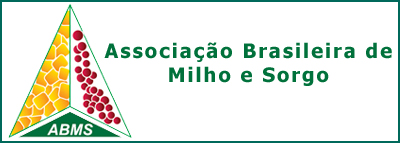INFLUENCE OF SEED SIZE ON MAIZE SEEDLINGS WHEN SOWN UNDER WATER DEFICIT CONDITIONS
DOI:
https://doi.org/10.18512/rbms2020v19e1167Palavras-chave:
Zea mays, abiotic stress, sieve, initial growth.Resumo
Seed size may affect the initial development of seedlings, especially
under adverse conditions such as water deficit. The objective of this study was to characterize the influence of seed size on traits presented by maize seedlings under contrasting conditions of water availability. The experiment was conducted with a tolerant line (L91), a non-tolerant line (L57), and with the F2 resulting from the cross between those lines. The seeds were classified with the use of round-hole sieves and those retained on sieves of sizes 22, 20 and 18/64” were used. The seeds were sown in trays containing sand and, in order to simulate water deficit, the water retention capacity was adjusted to 10% (stress) and 70% (control). Four replications were used, with 25 seeds per treatment, which were stored in a growth chamber at 25 ºC for 7 days. Then the number of seminal roots, length of root and shoot, and their weights (fresh, dry and total) were evaluated. The seed size directly influences the development of maize seedlings, when subjected to water restriction, regardless of whether they are lines or F2. In this case, the larger-size sieves (22 and 20) were superior when compared with the size 18. In the early stages, the L57 was more tolerant to water restriction when compared with L91.
Downloads
Publicado
Como Citar
Edição
Seção
Licença
Autores que publicam nesta revista concordam com os seguintes termos:- Autores mantém os direitos autorais e concedem à revista o direito de primeira publicação, com o trabalho simultaneamente licenciado sob a Creative Commons Attribution License que permitindo o compartilhamento do trabalho com reconhecimento da autoria do trabalho e publicação inicial nesta revista.
- Autores têm autorização para assumir contratos adicionais separadamente, para distribuição não-exclusiva da versão do trabalho publicada nesta revista (ex.: publicar em repositório institucional ou como capítulo de livro), com reconhecimento de autoria e publicação inicial nesta revista.
- Autores têm permissão e são estimulados a publicar e distribuir seu trabalho online (ex.: em repositórios institucionais ou na sua página pessoal) a qualquer ponto antes ou durante o processo editorial, já que isso pode gerar alterações produtivas, bem como aumentar o impacto e a citação do trabalho publicado



